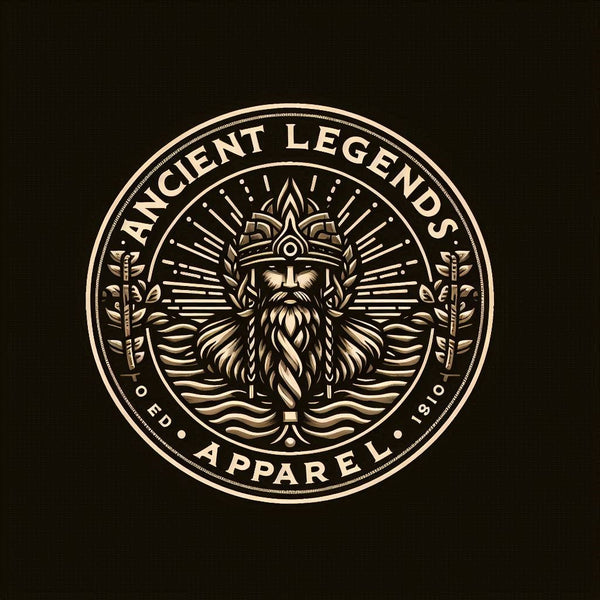How Gladiators of Rome Influenced Modern Fantasy
Karl FShare
INTRODUCTION
Steeped in the annals of time, the immemorial legend of the Roman Gladiator has an incredibly vibrant presence in the contemporary world. They are the captivating embodiment of strength, courage, and indomitable spirit, sculpted by the blistering sands of the gladiatorial arena. Within their blood-drenched and sweat-drenched narrative, the echoes of every swordsman's clanging steel, every growling beast, every roared chant from the audience, still vibrate to the beat of the modern fantasy genre.
ORIGIN AND CULTURAL CONTEXT
From the brutal but honorable Spartacus to the courageous Maximus of 'Gladiator', it is integral to understand how the authentic narrative of these warriors began. The gladiatorial games were an undeniable part of Roman society, a blood-soaked pageant of life, death, honor, and savagery. The origin springs from Etruscan funeral rites where, to honor the deceased, slaves and captives were made to battle to the death. The transition into a popular amusement came in 264 BC when private Roman citizens held stadium battles, and soon, the activity won the favor of emperors who utilized them to appease the public.
The gladiators themselves were slaves, prisoners, or volunteers, undergoing rigorous training. They personified the martial ethics of Rome, and thus, they were both admired and despised, reflecting the paradoxical nature of Roman society.
THE LEGEND OR STORY
Every part of the gladiator's life was steeped in a mythic significance, from their training in the 'ludus' to their final combat in the 'Colosseum'. The 'munus' or games were often reenactments of the mythical battles - man against man or man against beast, echoing the timeless duel between Hercules and the Nemean Lion; or Perseus battling Medusa.
Their weapons and fighting style were also symbolic representations. The 'Retiarius', fought with a net and trident, embodying Neptune, the sea-god; while the 'Secutor', armed with a sword and shield, mirrored the hero Aeneas. The battles of gods and heroes from mythology were thus played out in the bloody sands of the Colosseum.
INTERPRETATIONS AND SYMBOLISM
The gladiatorial games were more than simple blood sport. They served as a symbolic representation of Rome's military ethos and were a display of the virtue of 'virtus': manliness, valor, and moral rectitude. They also symbolized order within chaos - the gladiator adhered to strictly regimented rules of combat, even in the throes of a life-and-death struggle.
The spectacle of the games also embodied the balance between 'mors immatura' (premature death) and the soldier's heroic death on the battlefield. For many gladiators, death in the arena was an opportunity for posthumous fame and glory. This reflects the Greco-Roman concept of the ‘beautiful death’, where personal glory was esteemed above life itself.
COMPARISONS IN OTHER CULTURES
Scholars often compare the gladiatorial spectacle with the sacrificial rituals of Mesoamerican civilizations. Like Rome, the Aztecs and Mayans also saw a spiritual significance in violent spectacle, with their ballgames serving as earthly embodiments of mythological struggles.
While these sports contained less bloodshed, they were no less ruthless—players were often sacrificed to the gods after the game. Not unlike these historical parallels, gladiators too had their existence intertwined with the divine, their fights echoing the dramatic battles of the deities.
MODERN REFERENCES AND POP CULTURE
The gladiatorial influence seeps thoroughly into modern fantasy. George R.R Martin's 'Game of Thrones' reinterprets the gladiatorial ethos through the warrior culture of the 'Dothraki' and the brutal fighting pits of 'Meereen'. Ridley Scott’s Oscar-winning film 'Gladiator' portrays the heroism, sacrifices, and personal struggle of the Roman warrior, Maximus.
Video games like 'Assassin’s Creed: Origins' let you dive into the sands of the Colosseum, experiencing the adrenaline-fueled existence of a gladiator first-hand. Literature, comics, and even music are replete with references to these ancient swordsmen—proof of their enduring appeal.
LEGACY AND LASTING MYSTERIES
The legends of the Roman Gladiators, despite their raw and bloody origins, have left an everlasting cultural legacy. Their influence has spread to not only modern fantasy but has penetrated deeper, becoming an inextricable part of our understanding of courage, honor, and sacrifice. No other icon from the ancient world touches on such universal themes—a testament to the lasting power of their story.
Their allure is also fed by enigma—endless unanswered questions. Who were they beyond the arena? How did they cope with the constant dread of death? Did victory offer them more than fleeting glory?
These questions, in a sense, are what sustains our fascination with these ancient warriors—the knowledge that behind the gory spectacles, there were personal stories, timeless struggles, and a remarkably human spirit. It is this spirit that the realm of fantasy seeks to evoke, capturing the raw essence of the gladiators. Our fascination remains unquenched—just like the roaring Roman mob, we yearn for more.
